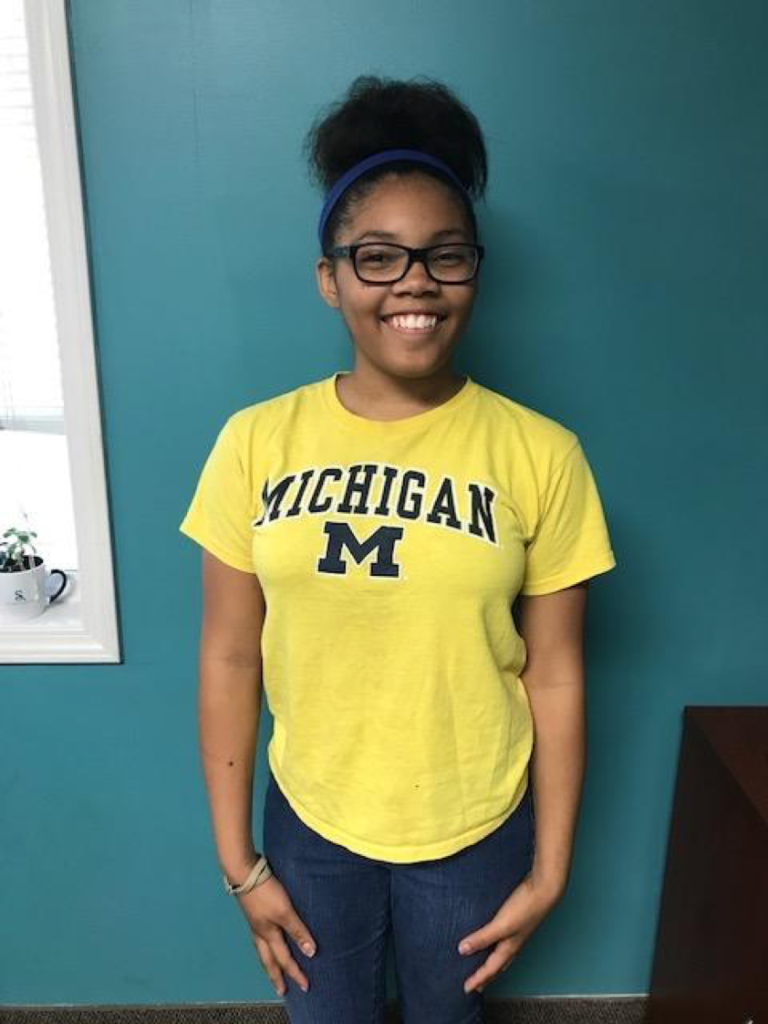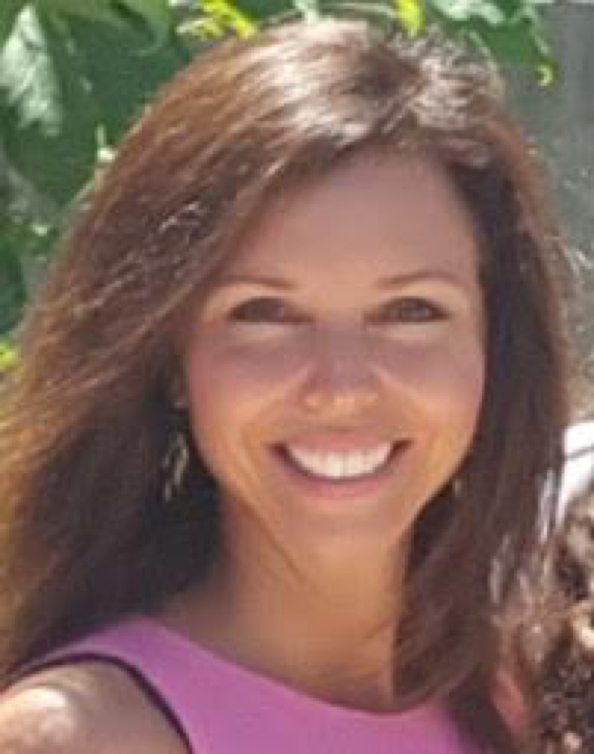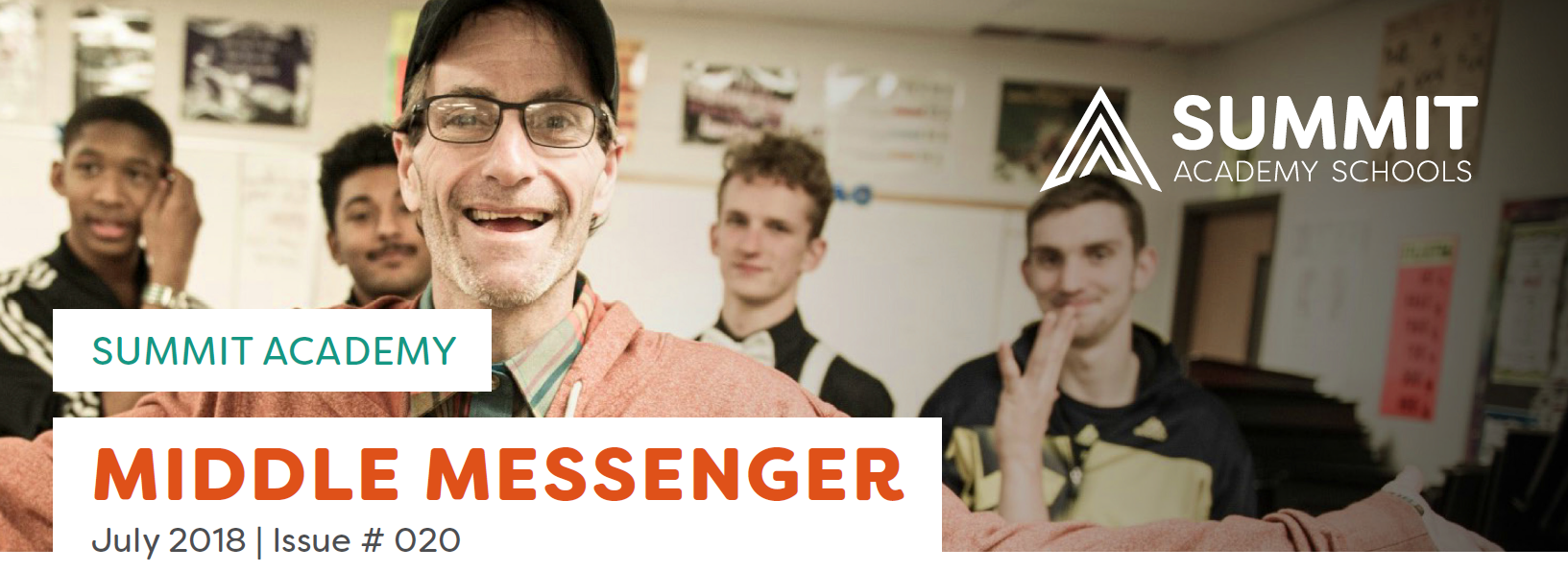Summit Is Better:
We Value Communication

The level of communication in our schools directly impacts how well our students respond to what they learn, how likely you are to get involved, and the way our staff functions.
We pride ourselves on how well we communicate and it is just another way we demonstrate why Summit Academy continues to be the best choice for your child.
Our Students
Effective communication is the primary way we are able to teach concepts to our students and lead them towards academic success. We value the one-on-one learning atmosphere we’ve built and our students benefit from the personalized learning plans we develop for them. It is impossible to maintain this level of communication and attention if students are not in attendance or miss an unnecessary amount of school. The learning process involves an interchange of ideas and that can only occur when everyone is present.
Summit Academy Parents
Your involvement is not only encouraged, it is necessary to the success of your child. Whenever our staff has a concern about a student, whether it is related to classwork or social issues, we do our best to alert you and get you involved so that we can work towards a solution together. In turn, it is our hope that you will communicate with us if you notice issues at home that we may not see at school. We believe that parents and teachers must have a strong partnership in order to provide adequate support to each student. Checking in with your child’s teacher throughout the year is important even when you don’t have concerns. Parent teacher conferences and other parent events at school give you the opportunity to hear learn about your child’s progress, growth, and academic abilities. Only with your assistance and support can we help your child achieve their academic goals.
Our Staff
Every person on our staff will likely express appreciation for the family atmosphere found in our schools. Communication is what makes our family thrive. We all share responsibility for helping our students mature and expand their knowledge and abilities. From building lesson plans to planning various hands-on activities, our students’ academic success is the result of our staff members making a coordinated effort to keep your child focused on their future.
Be sure to look for ways you can connect with us and get involved. Our door is always open to those of you looking for ways to increase your involvement in our schools.
Start a Discussion:
Ted Talks

Having a regular family discussion is essential to a student’s growth and development. Still, after you set aside the time to engage with your kids, you may face another problem; what do you talk about?
Getting past the typical “How was your day?” may not be easy, but thanks to the internet, there is a never ending stream of ideas for conversation.
An excellent resource for ideas is TED Talks, which are made up of many free short lectures on a variety of topics.
Something for Everyone
What makes TED Talks so engaging is the fact that they are given by industry experts, authors, performers, and people from all different backgrounds and professions. Topics include science, math, architecture, health, music, robotics, automotive, and many others. While they range in length, it is easy to find lectures in the 5 to 10 minute range for days when time is short.
You can make this a regular family activity by allowing each member of your household to select a TED Talk they find interesting and getting the whole family to watch it and discuss it afterwards. You will likely be surprised by the amount of conversation one lecture can create.
A Learning Experience for All
Regardless of the age range in your household, everyone will learn something new from a TED Talk. All the speakers set out to answer questions and bring new ideas to the forefront. Students in particular may be inspired to learn more about certain career paths based on some of the experiences they hear.
Be sure to take a look at some of the TED Talks available and see what interests your family. You can download the Ted Talks app for free on Android or iOS, or simply visit https://www.ted.com/talks.
Talking About Current Events

The first part of the school year has occurred during a difficult time for our country. Hurricanes and tragedies have been consistent topics in the news, and at times it has been a bit overwhelming for many of us.
Students are paying attention too. Though it may seem hard to find the words to discuss or explain what is happening, talking with your middle schooler is a must. If you haven’t already done so, take time to check in with your child to help them process all that they are hearing.
Ask Questions
Asking viewpoint questions can prevent you from imposing your own views onto your child and will allow them to express their own feelings. Middle schoolers are likely to hear about current events through social media, peers at school, or television before you have the chance to talk with them.
Because of how quickly information is spread, people are often quick to form opinions, and your child is no exception. When you do ask questions, make sure you are listening to their answers and taking time to see things from their perspective before you respond. Remember, the point of asking questions is to create a discussion. Even if your child expresses an opinion you disagree with, set the example and show them that differences can be discussed in a calm and civil manner.
Provide Reassurance
Sadly, there are a lot of negative things happening in current affairs. It is likely that your child may feel concerned about what they hear and see going on in their world. While it is important for them to understand the impact and significance of these events, it is just as important to share positive stories with them.
Where appropriate, encourage your child to find ways that they can help people directly affected by events they may hear about in the news, such as natural disasters. Maybe they can donate clothes, food, or other household items to those in need.
This can also be a great time to show them them how social media can be a force for good. Many victims of tragedies have support pages set up on Facebook where people can leave messages of support. You can help them locate these pages and encourage them to leave their own personal message.
Ultimately, the most important thing is to start a dialogue with your child. As a parent, you are the first line of support for them in times of distress.
If you feel you need help or are unsure of how to handle certain topics with your child, please reach out to us for assistance.
4 Tips For Handling Conflicts

Conflict is an unavoidable part of life. Yet, how students handle conflict directly affects their learning environment and the atmosphere of our school.
Here are 4 tips to help you teach your middle schooler how to peacefully resolve their conflicts.
1. Get the Facts
Before you can give your child advice, you need to learn the details of the situation. If your child is in an argument or having an issue with one of their peers, be sure to ask questions before immediately choosing a side. When possible, let your child cool down before you attempt to talk to them. This can give them a chance to recount the details of the situation with a clear mind and hopefully with more accuracy.
2. Encourage Communication
Violence, revenge, or bullying of any sort is never an acceptable way to resolve a problem. If your child feels that it is safe to do so, encourage them to talk directly to the person they are having conflict with the goal of finding a solution together. However, do not pressure your middle schooler to engage with someone they do not feel comfortable with.
3. Diffuse the Situation
When you witness your child engaging in a conflict that seems to be escalating, take steps to diffuse the situation quickly. This is a tough time for students physically, emotionally, and mentally and simple disagreements can spiral out of control without appropriate action. Physically removing your child from a situation or taking actions such as disabling social media accounts can protect both your kid and others from making a serious mistake.
4. Talk to an Authority Figure
Naturally, the goal is for your child to let you know any problems they are having with other students or adults. However, if they are experiencing conflict at school, it is very important to make a teacher or admin aware of the situation. When staff members are aware of the circumstances, it allows them to monitor for any developments and help prevent further issues.
Above all else, Summit Academy North Middle School is a safe environment for students to learn.
By helping your child appropriately handle conflict, you are joining us in keeping peace in our school.
MEET OUR STAFF & STUDENTS
Student:
Sydney Roberts

Age: 12
Best thing about the holidays:
“Food and family.”
Favorite subject:
“Social studies and science.”
Favorite Teacher(s):
“Ms. Mickey, Mrs Shaw, Ms. Maci, Mr. Sombati, and Mrs. Cleary.”
Sydney loves Summit because:
“I met all of my closest friends here.”
Student:
Grace Beebe

Age: 13
Best thing about the holidays:
“Getting to sleep a lot.”
Favorite subject:
“Art.”
Favorite Teacher:
“Mrs. Shoen.”
Grace loves Summit because:
“We get to do fun things like Art, science, and ELA. Art is great because we get to draw at our heart’s content. I like going against each other in science and writing stories in ELA.”
Faculty:
Jill Carbone

Role at Summit Academy North Middle School:
“Jill currently teaches EL and has been with Summit Academy for 10 years.”
Jill in three words:
Patient, compassionate, creative.
Favorite book:
“The Alchemist by Paulo Coelho.”
Why she loves Summit:
“I love the kids!”
Most memorable moment at Summit:
“Watching my students graduate each year.”
Summit Academy is better because:
“Summit is invested in the well-being of its students.”
